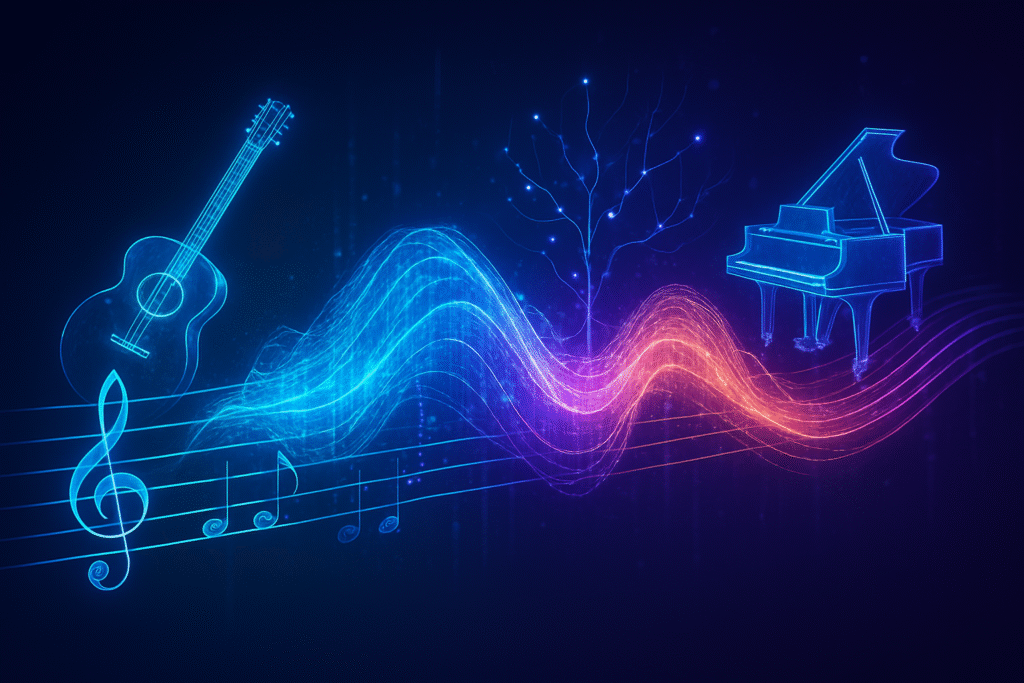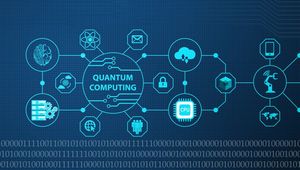
Los Angeles, CA – October 2, 2025 – In a move poised to fundamentally redefine the relationship between the music industry and artificial intelligence, Universal Music Group (UMG) (OTCMKTS: UMGFF) and Warner Music Group (WMG) (NASDAQ: WMG) are reportedly on the cusp of finalizing unprecedented licensing agreements with a cohort of leading AI companies. These landmark deals aim to establish a legitimate framework for AI models to be trained on vast catalogs of copyrighted music, promising to unlock new revenue streams for rights holders while addressing the thorny issues of intellectual property, attribution, and artist compensation.
The impending agreements represent a proactive pivot for the music industry, which has historically grappled with technological disruption. Unlike the reactive stance taken during the early days of digital piracy and streaming, major labels are now actively shaping the integration of generative AI, seeking to transform a potential threat into a structured opportunity. This strategic embrace signals a new era where AI is not just a tool but a licensed partner in the creation and distribution of music, with profound implications for how music is made, consumed, and valued.
Forging a New Blueprint: Technicalities of Licensed AI Training
The core of these pioneering deals lies in establishing a structured, compensated pathway for AI models to learn from existing musical works. While specific financial terms remain largely confidential, the agreements are expected to mandate a payment structure akin to streaming royalties, where each use of a song by an AI model for training or generation could trigger a micropayment. A critical technical demand from the music labels is the development and implementation of advanced attribution technology, analogous to YouTube's Content ID system. This technology is crucial for accurately tracking and identifying when licensed music is utilized within AI outputs, ensuring proper compensation and transparency.
This approach marks a significant departure from previous, often unauthorized, methods of AI model training. Historically, many AI developers have scraped vast amounts of data, including copyrighted music, from the internet without explicit permission or compensation, often citing "fair use" arguments. These new licensing deals directly counter that practice by establishing a clear legal and commercial channel for data acquisition. Companies like Klay Vision, which partnered with UMG in October 2024 to develop an "ethical foundational model for AI-generated music," exemplify this shift towards collaboration. Furthermore, UMG's July 2025 partnership with Liquidax Capital to form Music IP Holdings, Inc. underscores a concerted effort to manage and monetize its music-related AI patents, showcasing a sophisticated strategy to control and benefit from AI's integration into the music ecosystem.
Initial reactions from the AI research community are mixed but largely optimistic about the potential for richer, ethically sourced training data. While some developers may lament the increased cost and complexity, the availability of legally sanctioned, high-quality datasets could accelerate innovation in AI music generation. Industry experts believe these agreements will foster a more sustainable ecosystem for AI development in music, reducing legal uncertainties and encouraging responsible innovation. However, the technical challenge of accurately attributing and compensating for "something unrecognizable" that an AI model produces after being trained on vast catalogs remains a complex hurdle.
Redrawing the Competitive Landscape: AI Companies and Tech Giants Adapt
The formalization of music licensing for AI training is set to significantly impact the competitive dynamics among AI companies, tech giants, and startups. Companies that secure these licenses will gain a substantial advantage, possessing legally sanctioned access to a treasure trove of musical data that their unauthorized counterparts lack. This legitimization could accelerate the development of more sophisticated and ethically sound AI music generation tools. AI startups like ElevenLabs, Stability AI, Suno, and Udio, some of whom have faced lawsuits from labels for past unauthorized use, are among those reportedly engaged in these critical discussions, indicating a shift towards compliance and partnership.
Major tech companies such as Alphabet (NASDAQ: GOOGL) (via Google) and Spotify (NYSE: SPOT), already deeply entrenched in music distribution and AI research, stand to benefit immensely. Their existing relationships with labels and robust legal teams position them well to navigate these complex licensing agreements. For Google, access to licensed music could bolster its generative AI capabilities across various platforms, from YouTube to its AI research divisions. Spotify could leverage such deals to integrate AI more deeply into its recommendation engines, personalized content creation, and potentially even artist tools, further solidifying its market position.
Conversely, AI companies that fail to secure these licenses may find themselves at a severe disadvantage, facing legal challenges and limited access to the high-quality, diverse datasets necessary for competitive AI music generation. This could lead to market consolidation, with larger, well-funded players dominating the ethical AI music space. The potential disruption to existing products and services is significant; AI-generated music that previously relied on legally ambiguous training data may face removal or require renegotiation, forcing a recalibration of business models across the burgeoning AI music sector.
Wider Significance: Intellectual Property, Ethics, and the Future of Art
These landmark deals extend far beyond commercial transactions, carrying profound wider significance for the broader AI landscape, intellectual property rights, and the very nature of creative industries. By establishing clear licensing mechanisms, the music industry is attempting to set a global precedent for how AI interacts with copyrighted content, potentially influencing similar discussions in literature, visual arts, and film. This move underscores a critical shift towards recognizing creative works as valuable assets that require explicit permission and compensation when used for AI training, challenging the "fair use" arguments often put forth by AI developers.
The impacts on intellectual property rights are immense. These agreements aim to solidify the notion that training AI models on copyrighted material is not an inherent "fair use" but a licensable activity. This could empower creators across all artistic domains to demand compensation and control over how their work is used by AI. However, potential concerns remain regarding the enforceability of attribution, especially when AI outputs are transformative. The debate over what constitutes an "original" AI creation versus a derivative work will undoubtedly intensify, shaping future copyright law.
Comparisons to previous AI milestones, such as the rise of large language models, highlight a crucial difference: the proactive engagement of rights holders. Unlike the initial free-for-all of text data scraping, the music industry is attempting to get ahead of the curve, learning from past missteps during the digital revolution. This proactive stance aims to ensure that AI integration is both innovative and equitable, seeking to balance technological advancement with the protection of human creativity and livelihood. The ethical implications, particularly concerning artist consent and fair compensation for those whose works contribute to AI training, will remain a central point of discussion and negotiation.
Charting the Horizon: Future Developments in AI Music
Looking ahead, these foundational licensing deals are expected to catalyze a wave of innovation and new business models within the music industry. In the near term, we can anticipate a proliferation of AI-powered tools that assist human artists in composition, production, and sound design, operating within the ethical boundaries set by these agreements. Long-term, the vision includes entirely new genres of music co-created by humans and AI, personalized soundtracks generated on demand, and dynamic music experiences tailored to individual preferences and moods.
However, significant challenges remain. The complexity of determining appropriate compensation for AI-generated music, especially when it is highly transformative, will require continuous refinement of licensing models and attribution technologies. The legal frameworks will also need to evolve to address issues like "style theft" and the rights of AI-generated personas. Furthermore, ensuring that the benefits of these deals trickle down to individual artists, songwriters, and session musicians, rather than just major labels, will be a crucial test of their long-term equity.
Experts predict that the next phase will involve a more granular approach to licensing, potentially categorizing music by genre, era, or specific characteristics for AI training. There will also be a push for greater transparency from AI companies about their training data and methodologies. The development of industry-wide standards for AI ethics and intellectual property in music is likely on the horizon, driven by both regulatory pressure and the collective efforts of rights holders and technology developers.
A New Harmony: Wrapping Up the AI Music Revolution
The impending licensing deals between Universal Music Group, Warner Music Group, and AI companies represent a watershed moment in the intersection of technology and art. They signify a critical shift from an adversarial relationship to one of collaboration, aiming to establish a legitimate and compensated framework for AI to engage with copyrighted music. Key takeaways include the proactive stance of major labels, the emphasis on attribution technology and new revenue streams, and the broader implications for intellectual property rights across all creative industries.
This development holds immense significance in AI history, potentially setting a global standard for ethical AI training and content monetization. It demonstrates a commitment from the music industry to not only adapt to technological change but to actively shape its direction, ensuring that human creativity remains at the heart of the artistic process, even as AI becomes an increasingly powerful tool.
In the coming weeks and months, all eyes will be on the finalization of these agreements, the specific terms of the deals, and the initial rollout of AI models trained under these new licenses. The industry will be watching closely to see how these frameworks impact artist compensation, foster new creative endeavors, and ultimately redefine the sound of tomorrow.
This content is intended for informational purposes only and represents analysis of current AI developments.
TokenRing AI delivers enterprise-grade solutions for multi-agent AI workflow orchestration, AI-powered development tools, and seamless remote collaboration platforms.
For more information, visit https://www.tokenring.ai/.





